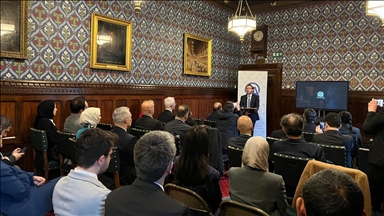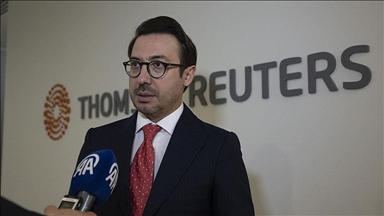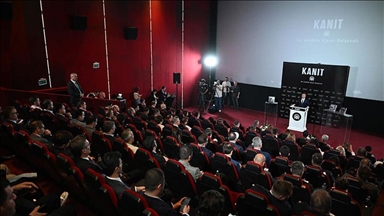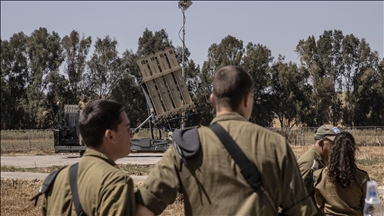AI in neurosurgery: A new era for precision medicine?
Experts in AI and neurosurgery expect major advances in the next 2 years as the technology could provide caregivers invaluable aid making crucial decisions during operations
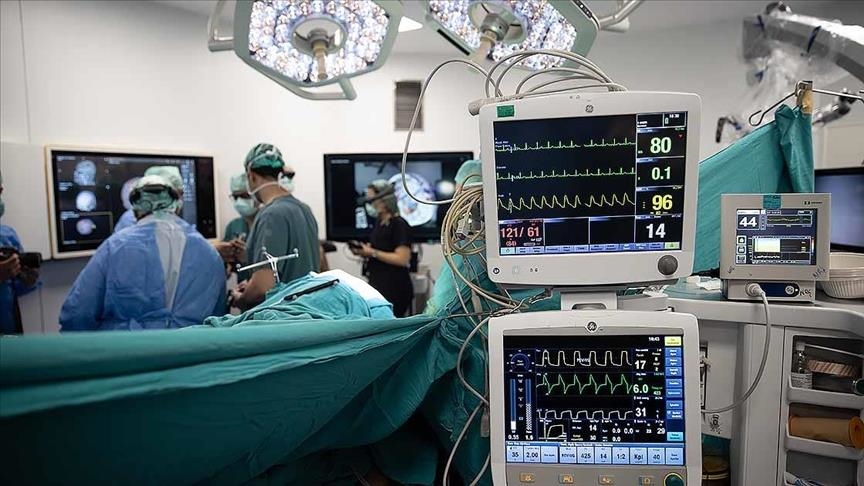
- Experts in AI and neurosurgery expect major advances in the next 2 years as the technology could provide caregivers invaluable aid making crucial decisions during operations
- Consultant neurosurgeon Hani Marcus tells Anadolu that AI tech being developed at University College London could help identify critical structures and lesions within the brain, enhancing precision and patient safety
- With potentially real-time guidance in the operating room, AI promises to enhance learning and preparedness among surgical trainees, says neurosurgical trainee and academic clinical fellow Danyal Khan
LONDON
Artificial intelligence (AI) is poised to redefine the way doctors perform neurosurgery, as leading experts predict major advances within the next two years.
AI technology being developed at University College London could prove an invaluable aid to surgeons trying to identify critical structures and lesions within the brain, enhancing precision and patient safety.
Hani Marcus, a consultant neurosurgeon at the National Hospital for Neurology and Neurosurgery in London, spoke to Anadolu about the potential of AI in minimally invasive keyhole brain surgery.
Marcus highlighted the challenges inherent in operating to remove brain tumors with the limited number of surgeons worldwide capable of performing such intricate procedures.
AI, he believes, can offer invaluable support by assisting surgeons in decision-making, tissue tracking, and risk assessment during surgery.
"What we think AI can do is really provide assistance," said the veteran neurosurgeon, making operations safer and more effective, while helping patients "therefore recover more quickly and with fewer complications."
"We think AI can do this in lots of ways. It can help the surgeon decide which instrument to use, what steps do next, how to track tissue, and warn them when there might be something at risk," he added.
Crucially, AI has the ability to assess vast amounts of surgical data surpassing the capability of human doctors and drawing insights and guidance from extensive case experiences, he explained.
"AI can help because it has the advantage of seeing way more cases in a single session. We have AI trained on 500 videos. That's holding the (what the) average surgeon might do in their career.
And then in years time, there'll be 10,000, for example, and these numbers are way bigger than anyone could ever experience themselves," he said.
Decisions in real time
While medical caregivers are already making use of AI before and after brain surgery is administered, this technology could soon also enter the operating room and help doctors make the best judgements for their patients.
"For patients having the surgery ... AI might help look at the scans. And after the surgery, AI might help decide whether patients are sicker than they should be or recovering as normal.
"Where AI so far has not been used is during surgery live, to provide surgeons input and to support them in deciding what to do next. And some of the biggest things that we do as surgeons are making judgments during the operation," he underlined.
According to neurosurgical trainee and academic clinical fellow Danyal Khan, AI can also benefit training the new doctors in the field.
From simulated practice sessions to real-time guidance in the operating room, AI promises to enhance learning and preparedness among surgical trainees.
Khan emphasized the importance of striking a delicate balance in AI integration, ensuring that it provides relevant information without overwhelming or underwhelming users.
"Even when you're in the operating room, having it in the background, showing you what anatomy we're seeing, what's going to happen next, consolidates your learning.
"So while you're watching your seniors, you're constantly learning every time and this helps you be prepared in the best way possible for when you take those steps yourself while using AI," he told Anadolu.
AI needs to strike a "really careful balance," according to Khan, who said it must show doctors what they need to know at any given moment in an operation, without showing so much that it "overloads" users, particularly trainees, and not showing so little that it is useless.
"The system can alert the surgeon to be cautious and maybe change their course of action. So that's (why) our team is moving forward with this project," he said.
Minimizing surgeons' cognitive load
Sophia Bano, an assistant professor at UCL's Department of Computer Science, spoke to Anadolu about ongoing efforts to train AI as an assistive tool during surgery.
Bano, who specializes in robotics and AI, emphasized the role of artificial intelligence in detecting critical structures and guiding surgeons to avoid potential risks, thereby mitigating post-operative complications.
By minimizing surgeons' cognitive load and offering real-time decision-making support, AI aims to navigate the complexities of brain surgery with unprecedented accuracy, she said.
The collaborative effort between surgeons, AI specialists, and teams focused on human factors underscores the meticulous approach to integrating AI into the surgical domain.
With ongoing research and development, AI-guided brain surgery offers hope for both patients and practitioners, potentially leading to a new era of precision medicine and better patient outcomes.
Anadolu Agency website contains only a portion of the news stories offered to subscribers in the AA News Broadcasting System (HAS), and in summarized form. Please contact us for subscription options.


